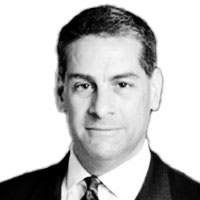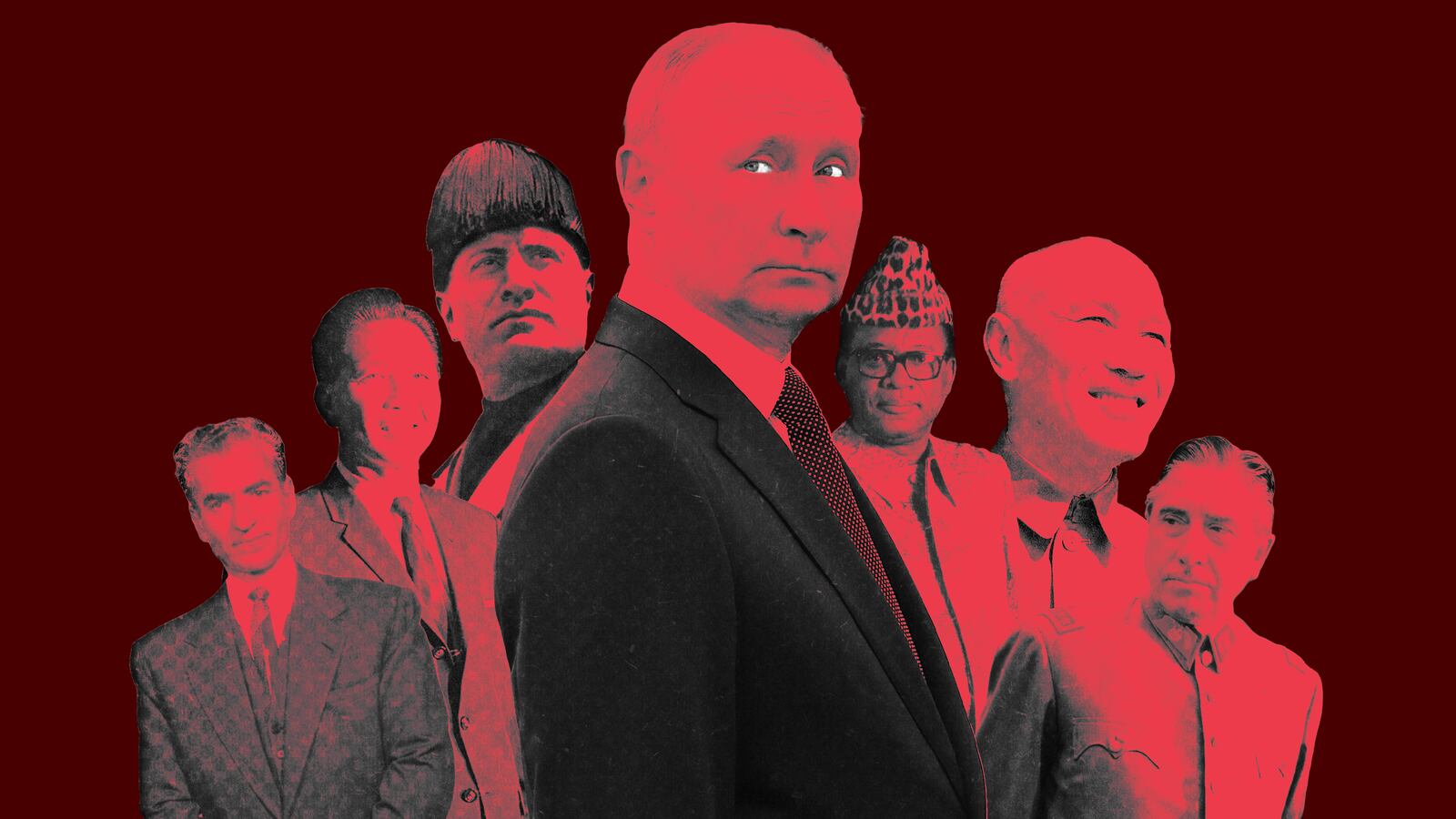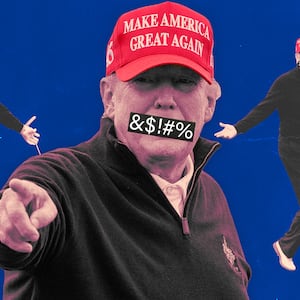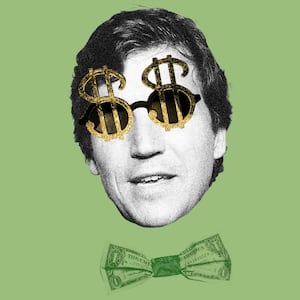When it comes to the GOP and Russia, pundits are flummoxed. “Whatever happened to the Republican Party?”
Only 86 of 213 House Republicans even showed up to Ukrainian President Volodymyr Zelensky’s December speech to Congress, and polls now indicate that a majority of Republicans oppose aid to Ukraine. Conservative thought leaders like Tucker Carlson dismissed Zelensky as a “Ukrainian strip club manager.” What in the world is going on?
Didn’t Ronald Reagan tell a Russian leader to “tear down this wall”? Didn’t conservatives make hostility to Russia a hallmark of their foreign policy? How can it be explained?
In reality, little needs explaining. As The New York Times notes, “the anti-Ukraine flank of the party is playing not to the fringe but to the heart of its base.”
The current GOP and conservative closeness to Vladimir Putin does not break tradition, but rather reaffirms a long-standing conservative perspective: affection for right-wing dictators. Putin is not so much the successor to the Soviet Union as he is another version of authoritarian leaders the Right has long supported.
The American conservative movement has always been comfortable with dictatorships. Sure, conservatives hated Communism, but not because of the USSR’s and Maoist China’s brutality; rather, they detested Communism because 1) It was atheist (“Godless” in conservative terminology); and 2) It abolished private property.
Putin, however, has brought back the Orthodox Church and capitalism (at least the crony kind), so what’s not to like?
The American right has welcomed just about every non-Communist dictatorship, both before and after World War II. Conservatives in the media, on Wall Street, and in politics consistently described Benito Mussolini in glowing terms: J.P. Morgan partner Thomas Lamont, who exerted a substantial influence on U.S. foreign policy in the interwar period, in 1926 described himself as “something like a missionary” for Il Duce. President Harding’s ambassador to Italy, Richard Washburn Child, ghost-wrote Mussolini’s front-page autobiography in The Saturday Evening Post.
When conservative Texas Democratic Rep. Martin Dies became head of a committee in 1938 to investigate domestic subversion, he and conservative members of both parties gave a pass to American fascists and Nazi sympathizers and focused exclusively on purported Communists.
After the war, the “China Lobby” that pushed for the United States to “unleash” the dictatorial Chiang Kai-shek in Taiwan (for the record a million times better than Mao) and smeared General George C. Marshall for “losing China” was also an overwhelmingly right-wing movement, led by Time publisher Henry Luce.
Conservatives in the Reagan administration resisted sanctions against apartheid-era South Africa in favor of “constructive engagement.” The Philippines’ Ferdinand Marcos—who declared martial law, ended free elections, and assassinated his political opponents—was lauded by then-Vice President George H.W. Bush for “dedication to democratic principles.” Zaire’s Mobutu Sese Seko—whose corruption was so awful that the word “kleptocracy” was coined to describe his regime—and the Pakistani generals who overthrew a series of elected governments and repeatedly attacked democratic India, were also backed by many U.S. conservatives.
This was not solely because these governments were anti-Communist; rather, their rule was congenial to right-wing thinking. William F. Buckley’s National Review lauded Spanish dictator Francisco Franco not just as a bulwark against Communism but as one against liberalism. Franco was “an authentic national hero,” raved Buckley in 1957. In the present day, The Bulwark’s Joshua Tait observes that “Russell Kirk in 1964 depicted the popular Spanish Pavilion at the New York World’s Fair as ‘a triumph of traditionalism alive in the modern age’ and a ‘symbol of Liberalism’s decay.’”
Chilean dictator Augusto Pinochet, who overthrew the elected left-wing government of Salvador Allende, was not merely tolerated by American conservatives but lionized as a believer in economic freedom. Conservatives in the Eisenhower administration leapt at the chance to overthrow democratically elected Iranian President Mohammed Mossadegh in favor of the Shah—a course of action earlier rejected by the Democratic Secretary of State Dean Acheson—even though Mossadegh was no communist.
These regimes were not necessary evils; they were positive goods. They represented models that the conservative movement favored as the preferred polity. Thus, National Review, the leading magazine of the movement, also opposed the civil rights movement because the “White community” was entitled to rule on the grounds that it was more advanced. “[U]niversal suffrage,” Buckley wrote, “is not the beginning of wisdom or the beginning of freedom.” This was a matter of high principle, and he explicitly defended “the right of the few to preserve, against the wishes of the many, a social order superior to that which the many, given their way, might promulgate.”
Opposition to democracy was the point.
This analysis also explains the emergence of anti-Trump conservatives. The conservatives now most hostile to Putin—such as David Frum, Bill Kristol, Tom Nichols, Jennifer Rubin, and Max Boot—are what were formerly known as “neoconservatives,” who saw the USSR as a left-wing replay of Hitler’s Germany. These figures were “neo” precisely because they rejected the right’s decades-long embrace of non-Communist dictators.
Ronald Reagan memorably described the modern conservative movement as a “three-legged stool” of these intellectuals, socially conservative evangelical Christians, and big business—but only neoconservatives had any problems with right-wing dictators. The rest of the GOP base recognized kindred spirits.
The current right-wing love for Putin is, thus, not some strange Trumpist artifact or a fever that will soon break. It is not mindless partisanship. It is mindful partisanship, which will last for a long time, because it has deep roots in American conservative thought.
Those who believe in democracy must be ready, as John F. Kennedy famously said, for a long twilight struggle.
Jonathan Zasloff is Professor of Law at the UCLA School of Law. He holds a PhD from Harvard University in the history of American foreign policy.








